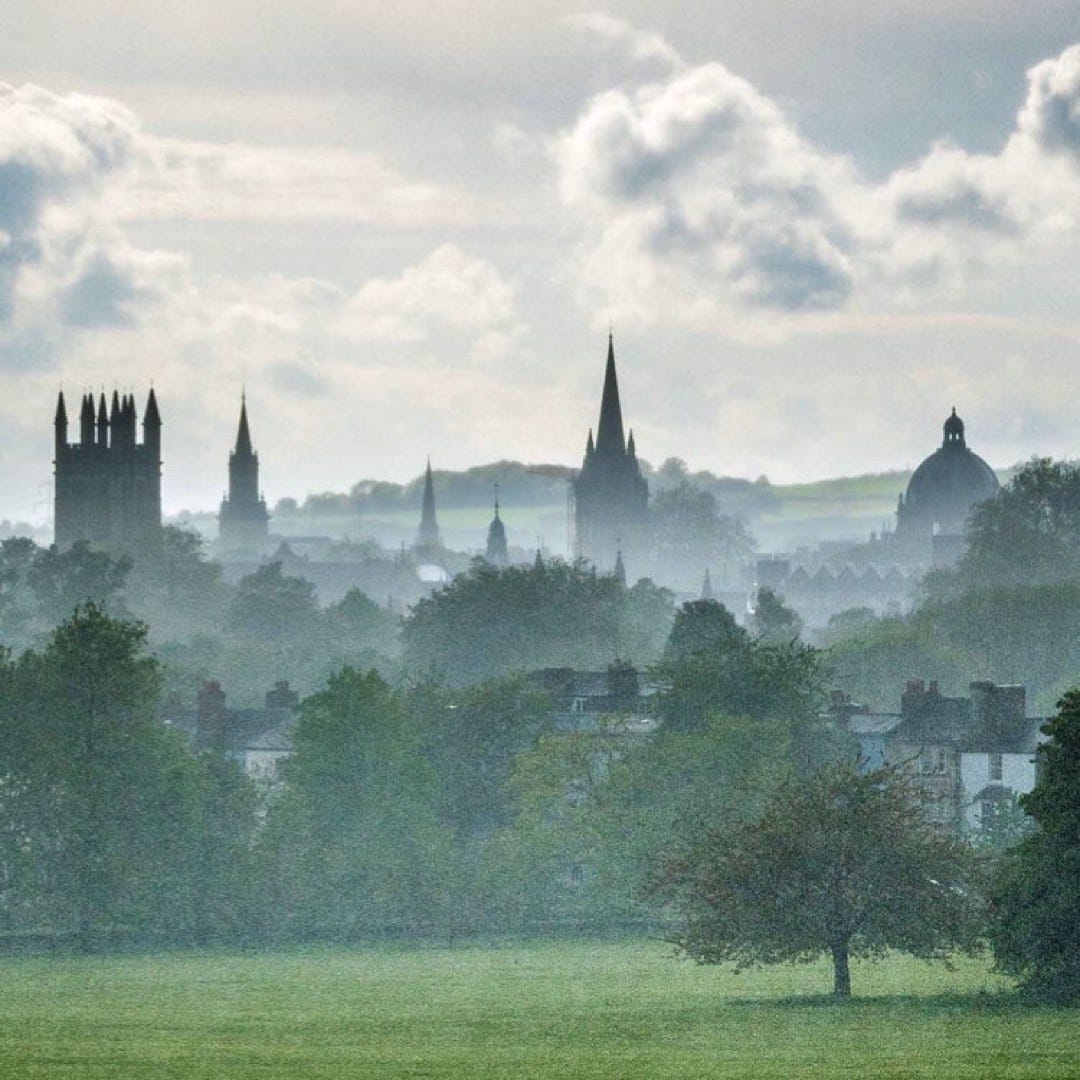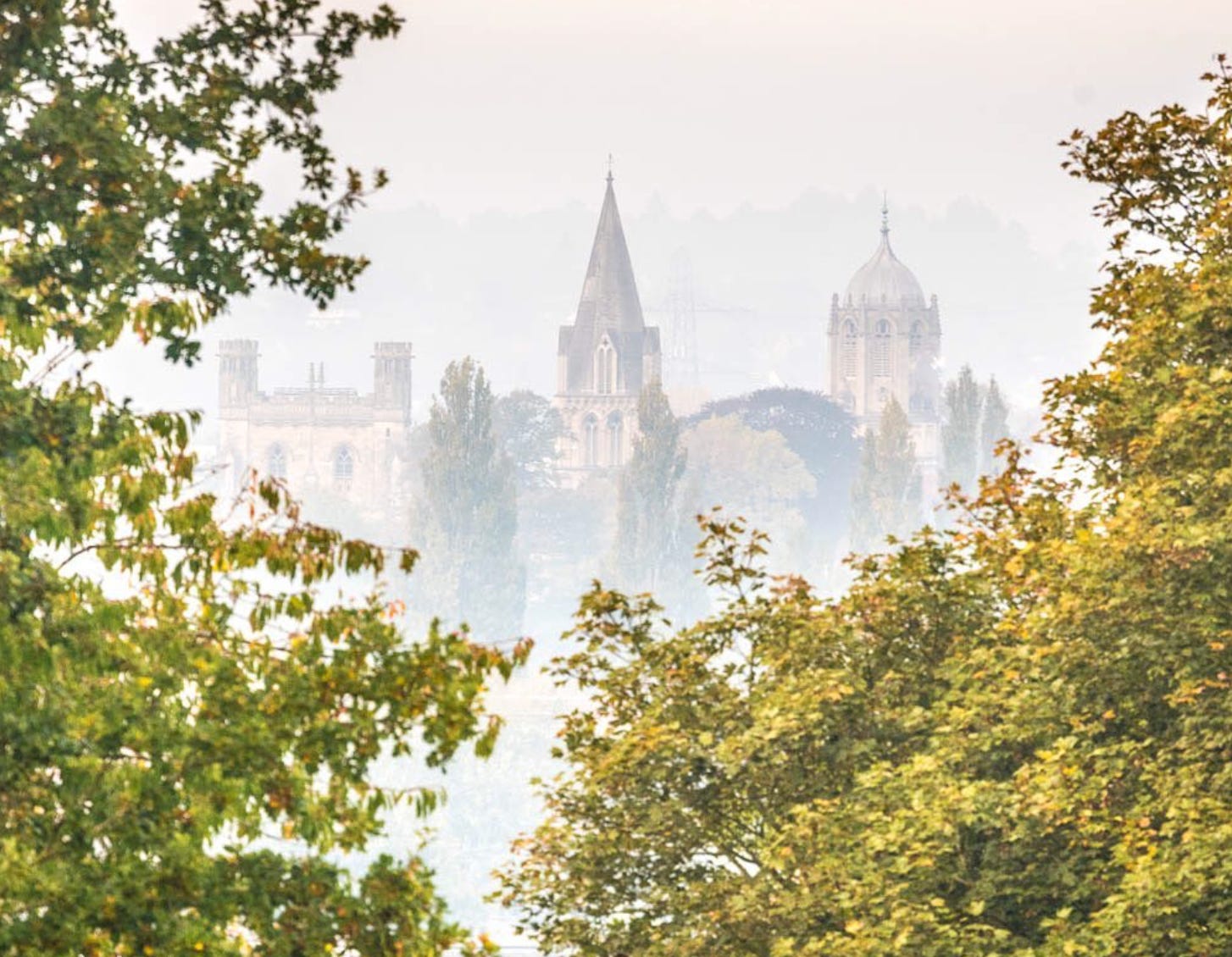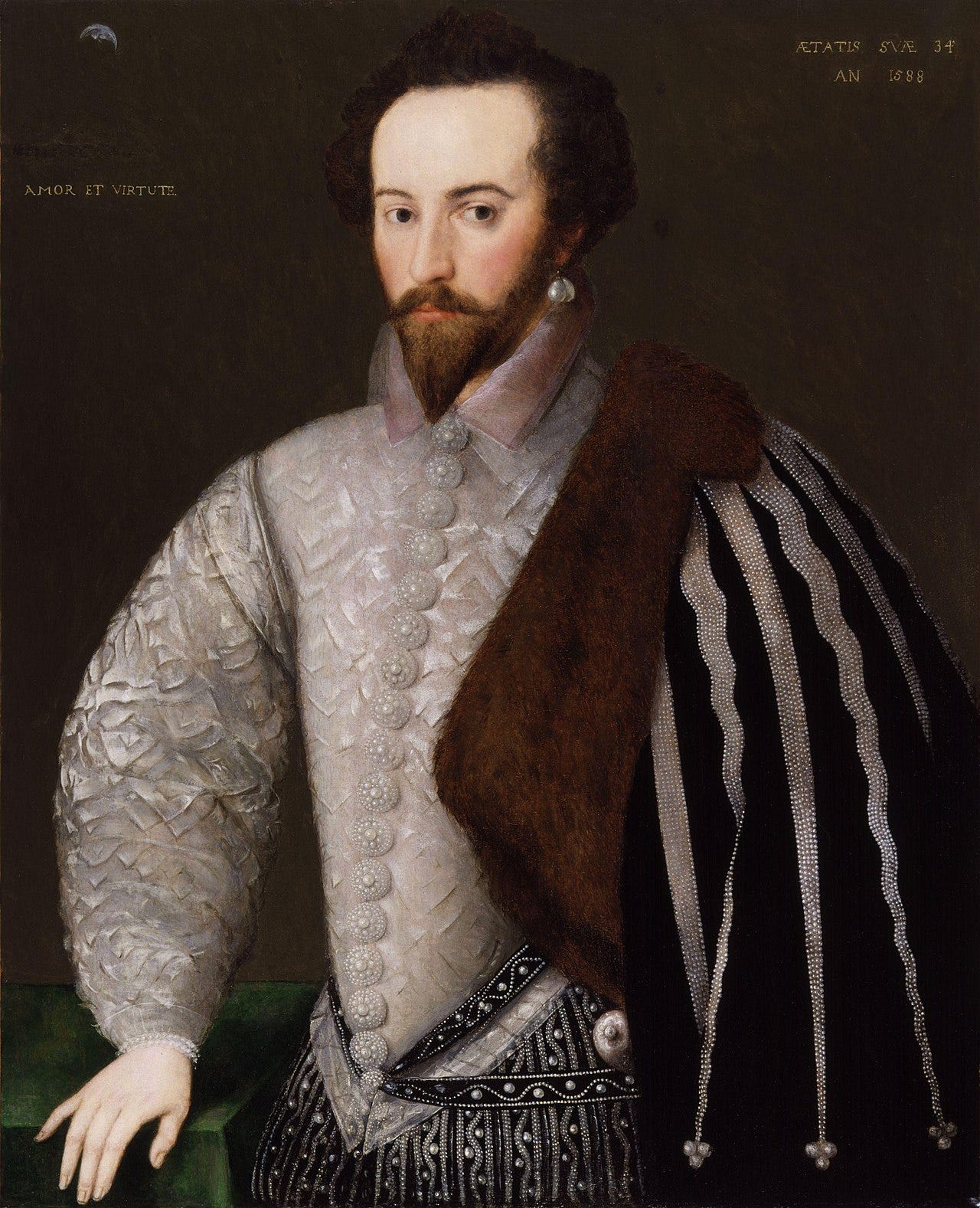Oxford's Poets in the Mists of History
Towers in the Mist: February 2024 Goudge Readalong

“Gradually, with the same mysterious slowness with which night had changed to day, towers rose out of the mist, and he looked down from the heights of Shotover upon the city of Oxford. It could not be real, he thought. It was a fragile city spun out of dreams, so small that he could have held it in the palm of his hand and blown it away into silver mist. It is not real. He had dreamed of it for so long that now, when he looked down at the valley the mist formed itself into towers and spires that would vanish under the sun the moment he shut his eyes… He shut his eyes, opened them, and the towers were still there.”
💙 Elizabeth Goudge, Towers in the Mist
Out of the mists of time
When Goudge wrote Towers in the Mist she was living in Christ Church, in the very house which she places Canon Leigh and his family. Her father, a Regis professor, brought her stacks of books from Thomas Bodley’s library, The Bodleian, for her historical research, and also for her to continue in her other delight. If you read any of Goudge’s books, you will soon encounter a wealth of poetry, music and art—but the greatest of these is poetry.
From a very early age, perhaps with her discovery of Shakespeare in grammar school, Goudge formed a lasting love for poets and their poems. In her later years, she would compile several volumes of poetry under themes of Peace, Comfort and Faith. But during the end of the 1930’s while surrounded with the spires and streets of Oxford, she gave herself over to the indulgence of reading the histories of the poets and imagining the lives of those who were once young scholars in Oxford.
Dedication
Towers in the Mist is dedicated to Goudge’s father, Henry Leighton Goudge (you can see where she got Canon Leigh’s name). It was the last of her published works that Henry would read, and she added this to her dedication:
“Here now have you, most dear, and most worth to be most dear Sir, this idle work of mine; which I fear, like the spider’s web, will be thought fitter to be swept away than worn to any other purpose. But you desired me to do it, and your desire to my heart is an absolute commandment.” —Philip Sidney.
These lines by Sidney could very well have come from her research of his time in Oxford, or perhaps the opposite it true: that Goudge included Sidney partly because of these lines. Goudge confesses in her preface to Towers:
“Worst of all, I have been guilty of bringing Philip Sidney up to Christ Church several months too early.”
Strictly historically speaking, Sidney should not be here.
So why is he?
Goudge’s love for Philip Sidney and his poetry has brought him here, and she found a very good foil for him in Walter Raleigh. And also, I turned up some exciting things in my research about these two… We will talk about them both today!

“Why does he make charts of the land beyond the sunset?" panted the puzzled Faithful.
"He's going to fit out a fleet of great ships and win an Empire for England in the west," explained Philip.
"Surely that will cost a lot of money," said Faithful, and he shook his head doubtfully, for he had formed a poor opinion of Master Raleigh's financial capabilities.
"He's going to manufacture the money," said Nicolas. "He's hard at work discovering a great Cordial or Elixir that will turn base metal into gold."
"But is there such a thing?" asked the literal Faithful.
Towers in the Mist, Ch 5

Sir Walter Raleigh
Keep reading with a 7-day free trial
Subscribe to Elizabeth Goudge Bookclub’s Substack to keep reading this post and get 7 days of free access to the full post archives.


